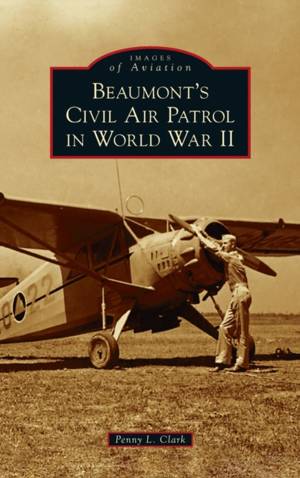
- Afhalen na 1 uur in een winkel met voorraad
- Gratis thuislevering in België vanaf € 30
- Ruim aanbod met 7 miljoen producten
- Afhalen na 1 uur in een winkel met voorraad
- Gratis thuislevering in België vanaf € 30
- Ruim aanbod met 7 miljoen producten
Zoeken
€ 36,45
+ 72 punten
Omschrijving
During World War II, Beaumont and Port Arthur were leaders in oil refining, which literally kept the Allied wheels moving toward victory. The Germans recognized the importance of Texas oil and sent submarines to sink American ships carrying the valuable cargo. Civil Air Patrol (CAP) Coastal Base No. 10, located at the Municipal Airport in Beaumont, Texas, in 1942-1943, helped alleviate the submarine menace by logging over 14,000 hours in the air over the Gulf. CAP was unconventional. As a part of the Office of Civilian Defense, CAP's members were civilians, many of whom were too old for the military. Other members owned airplanes or had experience flying to help go on missions patrolling the Atlantic and the Gulf of Mexico searching for enemy submarines or survivors of sub attacks. Although the men had training in military protocol, they remained civilians and often returned to their homes after completing their missions.
Specificaties
Betrokkenen
- Auteur(s):
- Uitgeverij:
Inhoud
- Aantal bladzijden:
- 130
- Taal:
- Engels
- Reeks:
Eigenschappen
- Productcode (EAN):
- 9781540248367
- Verschijningsdatum:
- 12/07/2021
- Uitvoering:
- Hardcover
- Formaat:
- Genaaid
- Afmetingen:
- 156 mm x 234 mm
- Gewicht:
- 362 g

Alleen bij Standaard Boekhandel
+ 72 punten op je klantenkaart van Standaard Boekhandel
Beoordelingen
We publiceren alleen reviews die voldoen aan de voorwaarden voor reviews. Bekijk onze voorwaarden voor reviews.











